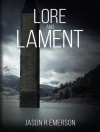Homage to Catalonia is George Orwell’s personal account of his experiences and observations fighting for the POUM militia of the Republican army during the Spanish Civil War. The war was one of the defining events of his political outlook and a significant part of what led him to write in 1946, ‘Every line of serious work that I have written since 1936 has been written, directly or indirectly, against totalitarianism and for Democratic Socialism, as I understand it.’
The first edition was published in the United Kingdom in 1938. The book was not published in the United States until February 1952, when it appeared with an influential preface by Lionel Trilling. The only translation published in Orwell’s lifetime was into Italian, in December 1948. A French translation by Yvonne Davet-with whom Orwell corresponded, commenting on her translation and providing explanatory notes-in 1938-39, was not published until five years after Orwell’s death.
Book Summary:
Orwell served as a private, a corporal (cabo) and-when the informal command structure of the militia gave way to a conventional hierarchy in May 1937-as a lieutenant, on a provisional basis, in Catalonia and Aragon from December 1936 until June 1937. In June 1937, the leftist political party with whose militia he served (the POUM, the Workers’ Party of Marxist Unification, an anti-Stalinist communist party) was declared an illegal organisation, and Orwell was consequently forced to flee.
Having arrived in Barcelona on 26 December 1936, Orwell told John Mc Nair, the Independent Labour Party’s (ILP) representative there, that he had ‘come to Spain to join the militia to fight against Fascism.’ He also told Mc Nair that ‘he would like to write about the situation and endeavour to stir working class opinion in Britain and France.’ Mc Nair took him to the POUM barracks, where Orwell immediately enlisted. ‘Orwell did not know that two months before he arrived in Spain, the [Soviet law enforcement agency] NKVD’s resident in Spain, Aleksandr Orlov, had assured NKVD Headquarters, ‘the Trotskyist organisation POUM can easily be liquidated’-by those, the Communists, whom Orwell took to be allies in the fight against Franco.’
A propos de l’auteur
‘There are occasions when it pays better to fight and be beaten than not to fight at all.’ ‘When I see an actual flesh-and-blood worker in conflict with his natural enemy, the policeman, I do not have to ask myself which side I am on.’ ‘The whole experience of being hit by a bullet is very interesting and I think worth describing in detail.’ George Orwell, Homage to Catalonia












